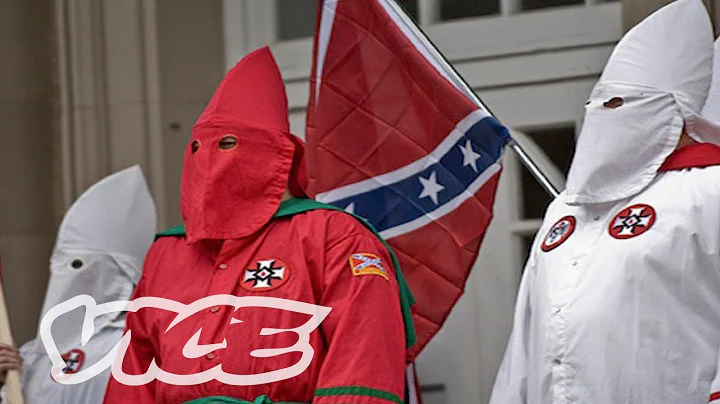Cao Kun, whose name is Zhongshan, was born in 1862 in a small owner's home in Tianjin, Zhili province. When he was young, he entered a private school. According to the legend, Cao Kun was illiterate, so he could only inscribe the word "tiger" when he gave an inscription. In fact, Cao Kun is quite versatile and good at painting plums. After sixteen, he made a living selling cloth. At the age of twenty, he joined the Huai Army as a soldier. Soon, he was selected to study in Tianjin Wubei School. After graduating in 1890, Yi Jun joined Song Qing as a sentry officer. In 1895, he went to Tianjin Station to join Yuan Shikai’s newly-built army. With his ability to speculate and drill camp, he quickly won Yuan Shikai’s favor and became the fourth figure outside of the "Beiyang Three Masters". , Control, General Soldiers, etc.

In February 1912, Yuan Shikai stole the post of interim president, and the Nanjing interim government sent personnel to Beijing to welcome him to take office south. At that time, Cao Kun was the commander of the Third Beiyang Division. Under Yuan's control, he mutated and looted the inner and outer cities, making Yuan Shikai an excuse to refuse to go south. In April 1914, Cao Kun was appointed by Yuan Shikai as the garrison commander of the upper reaches of the Yangtze River. He led the Third Division into Yuezhou to monitor the revolutionary forces in the south. In 1915, Cao Kun voted for Yuan Shikai's favor and supported him as emperor. In January 1916, Cao Kun was ordered to lead his army into Sichuan to fight with the National Protectorate. After Yuan Shikai's death, Cao Kun was transferred to the post of Zhili governor and stationed in Baoding.

Cao Kun is one of the important leaders of the direct line, but he often used two-sided perfunctory methods to protect himself in the sharp conflicts between the two factions in the direct line of Anhui. He maintained a good relationship with Duan Qirui of the Anhui family. Duan Qirui tempted him with his rights, and he agreed with Duan; Feng Guozhang called for the integration of the direct line, and he agreed with Feng. Cao Kun's official addiction and ambition were great. At that time, Feng Guozhang was the acting president, and the position of vice president was suspended. Cao Kun coveted. Duan Qirui and Xu Shuzheng used the position of "Vice President" as a bait to win him into the main battle. Faction, and become the leader of the main battle faction Overseer regiment.

In February 1918, Cao Kun personally led the army southward into Hunan, captured Yuezhou in March, and occupied Hengyang in April. However, Duan Qirui did not honor the "Vice President" agreement, and instead even gave Zhang Jingyao the site he grabbed from Hunan. Cao Kun returned to Tianjin in a rage. In June, the Supervisory Corps met in Tianjin. Cao Kun originally planned to initiate a peace settlement, but Xu Shuzheng explained to him in every possible way that the "Vice President" agreement would be fulfilled. Cao Kun felt that there was still hope, and continued to fight again, but he bargained with Xu Shuzheng. Xu advocated going south to fight first, and then sending the vice president to the seat of the vice president. Cao Kun insisted that he first set the vice president to himself before going to the south, but the two sides couldn't hold back. In August and September, Cao Kun's department sent Wu Peifu on the front line of Hunan to attack Duan Qirui's cabinet and its military unification policy. Cao Kun also secretly supported it. In the face of this situation, Duan Qirui had to decide to let Cao Kun become the vice president, instructing the Anfu Congress to meet and recommend. However, under the instigation of Xu Shichang, more than 100 members of the Transportation and Research Departments in the Congress opposed the election of Cao Kun as the vice president and refused to attend the meeting on the grounds of "virtual vice president for the southern leader". As a result, a lot of toss. Eventually, the "flow meeting" ended due to insufficient quorum. Cao Kunbai had a dream of "Vice President".

In December 1919, Feng Guozhang died of illness and Cao Kun was regarded as the leader of the direct line. Cao Kun and Wu Peifu echoed and cooperated with each other from north to south, preparing to fight the Anhui family. At the same time, they actively wooed Zhang Zuolin to deal with Duan Qirui together. As a result, the conflicts between the Zhi and Anhui warlords intensified, and finally the Zhi Anhui War broke out on July 14, 1920. The war lasted only 4 days and ended in a direct victory.

After the defeat of Duan Qirui in the Zhiwan War, he resigned by power. Cao Kun and Zhang Zuolin held a meeting in Tianjin to discuss the formation of a cabinet. Cao Kun originally wanted to recommend Wang Shizhen, but in order to consolidate the relationship with Zhang Zuolin, he finally agreed to Zhang Zuolin's proposal to invite his son and daughter's relative Jin Yunpeng to form a cabinet. Therefore, the Jin cabinet was formed on August 11. On August 14, the two marshals Cao Kun and Zhang Zuolin entered Beijing on a special train, and Xu Shichang welcomed them with the gift of the emperor.

Cao Kun and Zhang Zuolin are commonMonopolize the Beijing government and reach an agreement on stolen stolen goods: Cao Kun is the patrol envoy of the three provinces of Shandong, Shandong and Henan, and Wu Peifu is the deputy envoy; Zhang Zuolin is appointed as the general of Zhenwei. After each requesting 10 million yuan for military expenses from the Beijing government, the two sides left Beijing and returned to Tianjin on September 4. After arriving in Tianjin, Zhang Jinghui and Jin Yunpeng were brought together, and Cao Kun gave the seven-year-old daughter Cao Shiying to Zhang Zuolin's eight-year-old son Zhang Xuesi (later the Rear Admiral of the Chinese People's Liberation Army). Cao and Zhang became relatives of their children again.
However, the cooperation between Cao and Zhang and the alliance between the Zhi and Feng factions were extremely short-lived. The Zhili group wanted to keep the benefits it had gained and continue to seize the territory. The Fengxi group continued to develop into the pass in order to expand the sphere of influence, and the conflict between the two sides quickly sharpened. After Jin Yunpeng's cabinet came to power, it was completely controlled by the Zhi and Feng, and everything must be agreed by both parties. In order to unify the steps and mediate the conflicts, Jin Yunpeng invited Zhang Zuolin, Cao Kun, and Wang Zhanyuan to Tianjin for a meeting, which was then called the Tianjin Big Four Meeting, also known as the Tour Envoy Meeting.

From late April to late May 1921, all parties had heated discussions and quarrels on issues such as finance, cabinet, and disarmament. Although there were compromises, Each had its own gains, but they could not solve the fundamental problem. Instead, the conflicts became more acute and intensified, and they ended up unhappy. Under the situation of domestic and foreign difficulties, Jin's cabinet had to resign on December 17 after supporting it for several months. On December 24, Zhang Zuolin recommended the pro-Japanese dispatch of Liang Shiyi to be the prime minister of state. After Liang Shiyi came to power, he engaged in a series of pro-Japanese traitors, causing dissatisfaction from all walks of life across the country. Wu Peifu, who was directly in the line, also took the opportunity to attack Liang's cabinet aggressively, but the spearhead was actually directed at Zhang Zuolin. Zhang Zuolin threatened that if Wu Peifu opposed the Liang cabinet again, he would be accused of "rebelling against the head of state" and "soldiers intervening in politics," and suppressed the voice of opposition.

After the September 18th Incident in 1931, Cao Kun refused to take up the post of the Japanese and puppets, demonstrating national integrity. After the fall of North China, Cao Kun's old men fell into the water one after another and assumed important positions in the traitor regime. Japanese intelligence chief Kenji Doihara tried his best to win over former President Cao Kun, and wanted to set up a puppet government under his leadership. Under the persuasion of Mrs. Liu, the elderly Cao Kun vowed to drink gruel rather than serve the Japanese. When Cao Kun heard the news of Taierzhuang's victory, he was overwhelmed with excitement, saying: "I don't believe it, we can't beat that little Japan!" But as the war became unfavorable, he soon died of illness.










![イノサブ [ドラゴンプリンスユアン] ダイナミックマンガシーズン 2 コレクション - DayDayNews](https://i.ytimg.com/vi/WWmtIkpMJe0/hq720.jpg?sqp=-oaymwEcCNAFEJQDSFXyq4qpAw4IARUAAIhCGAFwAcABBg==&rs=AOn4CLClhrXqCN81fo4ubgCFgPJZPq2HWg)










